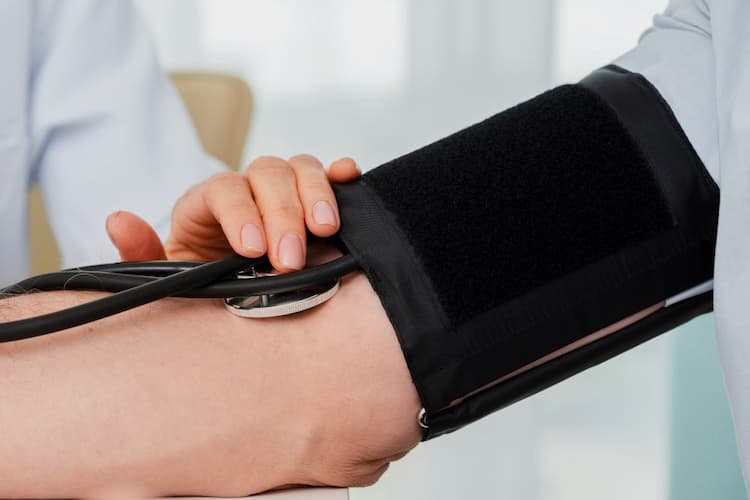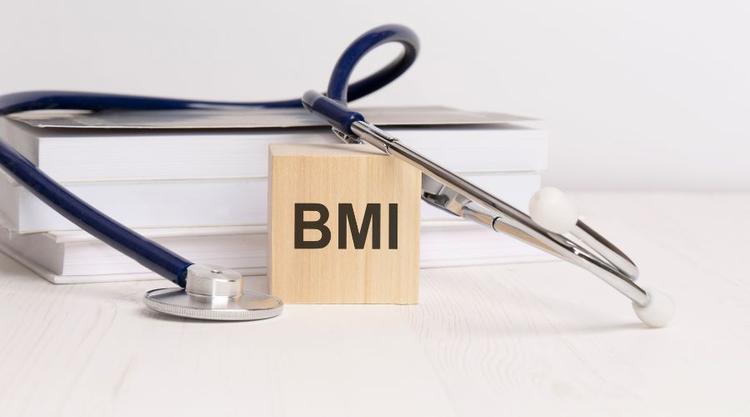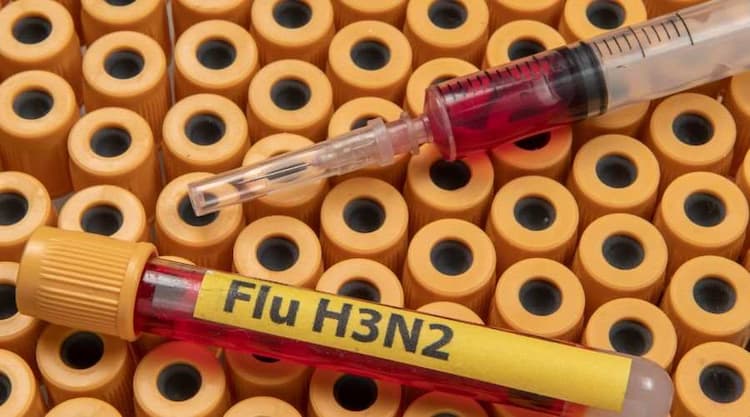What Are the Symptoms of Low Sodium?

Medically Reviewed By
Dr. Ragiinii Sharma
Written By Srujana Mohanty
on Jan 12, 2023
Last Edit Made By Srujana Mohanty
on Mar 18, 2024

Sodium is one of the crucial electrolytes that aid in regulating the water balance inside and around your cells. A lower-than-normal blood sodium level is referred to as hyponatremia. You'll see it recorded as "sodium" or "Na+" in your lab results if you've had blood tests.
Your blood's sodium and potassium levels are crucial and need to be maintained at a constant level. To ensure your health, the appropriate ratio of these components to the overall amount of water in your body must remain in balance. The nerves, muscles, blood pressure, and fluid balance in your body all depend on salt. A low sodium level in your blood ranging from 135 to 145 milliequivalents per liter (mEq/L) is considered normal.
When your blood sodium level falls below 135 mEq/L, you develop hyponatremia. Too much water dilutes the Na+ value in a lot of instances, which is the fundamental issue. Water consequently enters body cells, causing them to expand. Brain cells are severely affected by this swelling, which results in a change in mental status that might lead to seizures or coma.
The goal of treating hyponatremia is to treat the underlying problem. Hyponatremia can be brought on by a variety of conditions and drugs. With the assistance of their health practitioner, most patients fully recover.
Types of Hyponatremia
There are different kinds of hyponatremia. These include:
Euvolemic hyponatremia: This condition occurs when your body's sodium levels remain stable while your body's overall water content rises.
Hypervolemic hyponatremia: This condition occurs when the rise in total body water exceeds the increase in total body sodium.
Hypovolemic hyponatremia: In this condition, the decline in the total amount of body water is more significant than the decline in the total amount of body sodium.
Hyposmolar hyponatremia: also known as Hypotonic hyponatremia, is characterized by low levels of nutrients, proteins, and electrolytes (including low sodium). Hyposmolality may result from hyponatremia.
Dilutional hyponatremia: "Water intoxication" is another name for this kind of low sodium level. It refers to consuming excessive amounts of water without electrolytes, which provide essential minerals including calcium, potassium, and sodium and it’s what causes low sodium levels. Most people would need to drink a lot of water quickly to lower their blood salt levels unless they had health issues that make them susceptible to hyponatremia.
Hyponatremia signs and symptoms
Common neurologic symptoms of low sodium include confusion, seizures, and coma. The amount of bloodstream sodium that is depleted and how rapidly depends on the severity of the symptoms. Many times, a drop in blood sodium levels occurs gradually, resulting in very minor symptoms while the body adjusts. When blood salt levels drop quickly, symptoms worsen. The following are typical signs of hyponatremia:
- Weakness
- Nausea
- Vomiting
- Poor energy or weariness
- Headache
- Muscular spasms or cramps
- Irritability
- Confusion
Severely low sodium levels symptoms of hyponatremia
Rapid salt loss requires immediate medical attention. It may lead to:
- Excessive reflexes
- Consciousness loss
- Seizures
- Coma
- In the worst situations, death
Call for medical assistance right away if you or someone you know appears to be losing consciousness or experiencing a seizure, or exhibiting symptoms of low sodium.
Hyponatremia Causes
Chemical Imbalance is what causes low sodium levels. Your body depends heavily on sodium. It maintains the function of your nerves and muscles, supports the maintenance of normal blood pressure, and controls the fluid balance in your body.
Between 135 and 145 milliequivalents per liter (mEq/L) of sodium is considered to be normal. When the sodium level in your blood drops below 135 mEq/L, you get hyponatremia. But what causes low sodium in our body
Hyponatremia can result from a wide range of medical disorders and lifestyle choices. Common causes of low sodium include:
- Certain medicines. Some drugs, such as diuretics, painkillers, and antidepressants, can interfere with the hormone and kidney functions that regulate salt levels within a healthy normal range.
- Liver, renal, and heart issues When fluids build up in your body due to conditions like congestive heart failure or ailments of the kidneys or liver, the general level of sodium in your body is lowered.
- Unsuitable antidiuretic hormone syndrome (SIADH). High quantities of the anti-diuretic hormone (ADH) are produced in this disease, causing your body to retain water rather than expel it regularly through your urine.
- Dehydration can be caused by chronic, severe vomiting, diarrhea, or other conditions. This raises levels of ADH while also causing your body to lose electrolytes like salt.
- Being overly hydrated Low sodium levels can result from excessive water intake since it overwhelms the kidneys' capacity to eliminate water. Drinking too much water during endurance events like marathons and triathlons can also lower the salt level in your blood because you lose sodium through sweat.
- Hormonal adjustments. Your adrenal glands' capacity to generate hormones that support the maintenance of your body's salt, potassium, and water balance is impacted by adrenal gland insufficiency (Addison's disease). Low sodium levels can also be brought on by low thyroid hormone levels.
- Ecstasy is a substance used recreationally. The likelihood of developing severe or even catastrophic hyponatremia is increased by this amphetamine.
Hyponatremia Risk Factors
You are more likely to get hyponatremia if you have certain conditions, including:
Age: low sodium levels in the elderly are due to aging-related changes, drugs, and a higher risk of having a chronic illness that affects the body's sodium balance.
Some medicines: Drugs that increase the likelihood of the illness can also cause it. Thiazide diuretics, several antidepressants, and some painkillers are among the drugs that raise your risk of hyponatremia. Ecstasy, a popular drug, has also been connected to fatal hyponatremia cases.
Conditions that cause your body to excrete less water: Kidney disease, Diabetes insipidus, Cushing's syndrome, syndrome of inappropriate antidiuretic hormone (SIADH), and heart failure are just a few of the illnesses that could make you more susceptible to hyponatremia.
Physically demanding exercises: People who overhydrate while participating in physically demanding events like triathlons, marathons, ultramarathons, and other long-distance, high-intensity sports are more likely to develop hyponatremia.
Primary Polydipsia: People may also be at risk of hyponatremia if they have primary polydipsia, a psychological condition that makes them want to drink a lot of water.
Complications of Hyponatremia
Chronic hyponatremia is characterized by a slow decline in sodium levels over 48 hours or more, with milder symptoms and effects.
Sodium levels drop quickly in acute hyponatremia resulting in enlarged brain tissue, which can have potentially harmful implications. Complications that may arise if untreated include:
- Changes in mental state.
- Seizures.
- Coma.
- Death.
If you're a woman who has not yet experienced menopause, you run a higher chance of developing brain damage from hyponatremia. Doctors speculate that this may be related to how sodium levels are impacted by female sex hormones.
Diagnosing Hyponatremia
If your blood sodium level is low, your doctor will perform a diagnostic procedure. Urine sodium, potassium, and creatinine concentrations will be measured as part of the examination. Additionally, blood tests that measure levels of sodium (Na+), hormones that control how much water the kidneys take in, and your total body water content will be included. Along with a physical exam, your doctor will also ask you questions about your health history and take a medical history. They can use these procedures to determine how low your sodium level is and the cause of your hyponatremia.
Your physician might inquire:
- What types of sports do you play, and how do you prepare?
- What sort of prescribed drugs do you take.
- What types of illnesses and surgeries do you now have or have had in the past.
- How much alcohol, particularly beer, do you consume?
- Whether or not you consume illicit drugs like 3,4-methylenedioxymethamphetamine (MDMA, but also called Molly, E, or Ecstasy).
Tests for Low sodium Levels
Your doctor can check for low sodium levels via a blood test. Your doctor might request a basic metabolic panel even if you don't exhibit any signs of low blood sodium. This examines the levels of minerals and electrolytes in your blood.
A standard physical generally includes a simple metabolic panel. It may detect low sodium levels in people who are asymptomatic.
Your doctor will request a urine test to determine the sodium content of your urine if your levels are abnormal. Your doctor will be able to identify the source of your low blood sodium using the results of this test:
- Your body is losing too much salt if your blood sodium levels are low but your urine sodium levels are high.
- Your body isn't getting enough sodium if your blood and urine sodium levels are low. Additionally, you may have too much water in your body.
A few additional tests to check for hyponatremia may be ordered by your doctor if they are still uncertain of the diagnosis, such as
- Testing for liver function
- A computed tomography (CT) scan or X-ray of your chest
- CT scan of the brain
Hyponatremia Treatment
Together, you and your healthcare professional will determine the best course of action for your low sodium levels. The severity of your symptoms and the underlying cause will determine how you are treated.
Your healthcare professional makes slight adjustments to address the issue if you just have minor symptoms. The length of the course of treatment can vary. Short-term remedies include:
- Restricting water consumption
- Modifying or discontinuing medicine.
- Treatment of any underlying cause.
The long-term treatment strategy may include:
- Limiting water intake.
- Modifying, terminating or introducing newer drugs.
- Increasing your salt intake.
You'll probably need to visit the hospital for a comprehensive medical evaluation and treatment if you have moderate to severe hyponatremia. People with the most severe hyponatremia will likely have intravenous sodium replacement (straight into a vein). They'll also need to limit how much water they consume. To lower blood salt levels, your doctor may advise taking a drug such as tolvaptan (Samsca®) or conivaptan (Vaprisol®).
Taking care of the Underlying issue
Hyponatremia frequently results from an underlying ailment, which typically calls for a particular course of treatment. To improve hyponatremia, your medical practitioner will also address underlying medical conditions. Heart failure, renal failure, and liver cirrhosis are some of these ailments.
Hyponatremia may result from conditions like liver illness, renal disease, or heart disease, for instance. Surgery or medication may be needed to treat these disorders.
With the help of medication, people with thyroid disorders may frequently control their symptoms, avoid hyponatremia, and deal with other side effects. They might also need to alter their lifestyles, such as giving up smoking and drinking less alcohol.
To avoid hyponatremia, SIADH typically needs constant treatment. People with the illness may need to take salt tablets, and other medications, and limit their fluid consumption.
Contrasting hypo- and hypernatremia
A condition that is connected to hyponatremia is hypernatremia. While Hyponatremia is characterized by low blood sodium levels, hypernatremia is characterized by high blood sodium levels.
A person can acquire hypernatremia if they don't drink enough water, either due to limited access to water or a compromised thirst mechanism. When your serum sodium level reaches 145 milliequivalents per liter (Eq/L), you have hypernatremia. Diabetes insipidus is less commonly the cause of it.
Hypernatremia may result in:
- Confusion
- Neuromuscular excitability
- Hyperreflexia
- Seizures
- Coma
Preventing Hyponatremia
Now that we know what causes low sodium in our blood, let us know if we can prevent it. The following steps could assist you in avoiding hyponatremia:
- Treat underlying conditions. Treatment for illnesses like adrenal gland insufficiency, which causes hyponatremia, can help avoid low blood salt levels.
- Become informed. Know the symptoms and indications of hyponatremia if you have a medical condition that makes you more susceptible to it or if you take diuretic drugs. Always discuss the dangers of a new medicine with your doctor.
- When engaging in intense activity, use caution. During a race, athletes should only consume as much liquid as they sweat off. The amount of water or other fluids you require may usually be determined by how thirsty you are.
- When engaging in strenuous exercises, think about consuming sports drinks. If you want to participate in endurance sports like marathons, triathlons, or other strenuous activities, talk to your doctor about replacing water with sports beverages that include electrolytes.
- Moderately drink water. Getting enough fluids is important for your health, so make sure you drink enough water. But don't go overboard. The best indicators of how much water you need are typically thirst and the color of your urine. If your pee is light yellow and you are not dehydrated, you probably consume enough water.
Frequently Asked Questions
- What happens after receiving treatment for hyponatremia?
Many persons who receive treatment for hyponatremia fully recover. Even if you suffer from chronic hyponatremia, your doctor can still assist you. Poorer outcomes may occur in older folks and those who stay in the hospital for an extended period of time.
- Is hyponatremia common?
Hyponatremia occurs frequently. It's the most typical chemical imbalance detected in outpatient clinics and among hospitalized patients. People admitted to hospital care units or those with the aforementioned medical problems have greater rates of hyponatremia.
- Will consuming additional salt treat hyponatremia?
Low sodium levels in the elderly, due to low salt and protein diets may make hyponatremia worse. Water excretion is aided by the kidney's desire to eliminate solutes. Salt and more protein in the diet can enhance water excretion. The vast majority of the time, low sodium levels are not brought on by consuming insufficient salt in your diet, thus your doctor is unlikely to advise upping your sodium consumption to treat it. However, if you have SIADH, a condition that causes your body to retain too much water, you could be advised to eat more foods high in sodium or to season your food with additional table salt.
Conclusion
It might not appear too risky to use salt. However, having too little sodium in your blood can be quite harmful. When your blood has too little sodium, hyponatremia is diagnosed. Numerous disorders, such as Addison's disease or Cushing's syndrome, as well as frequent vomiting or diarrhea, among others, are causes of low sodium as these all are ways that water escapes our bodies.
Hyponatremia can range from moderate, with no symptoms, to quite severe, with life-threatening consequences.
Usually, hyponatremia can be reversed if it is detected in the moderate stage and treated, or if it is treated quickly in the severe stage.
Consider your fluid intake and output if you're more susceptible to hyponatremia. In particular, if you have a chronic condition like heart failure, kidney failure, or diseases of the endocrine system, get in touch with your healthcare provider if you experience any low sodium levels symptoms that worry you, such as headaches or nausea. Both your bloodstream's balance and your overall sense of balance are crucial.



